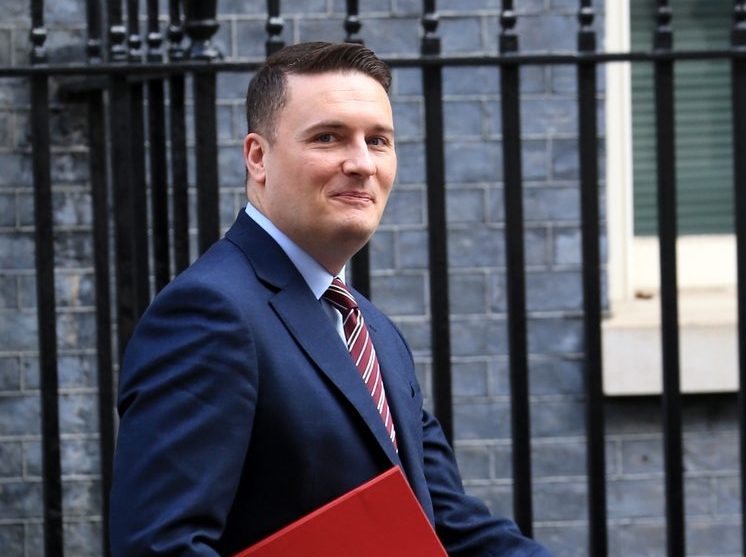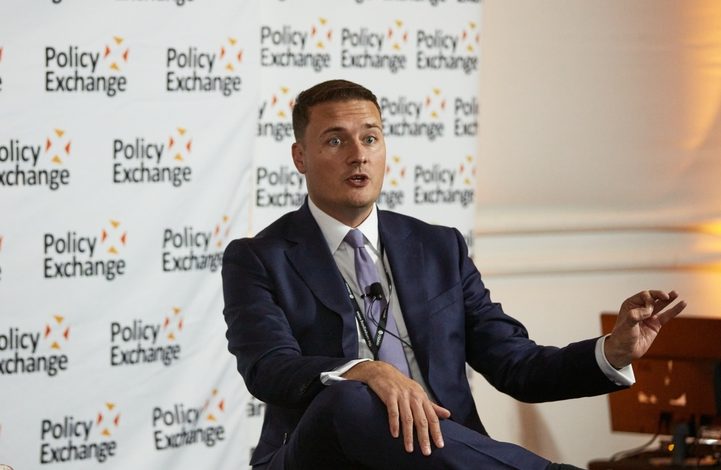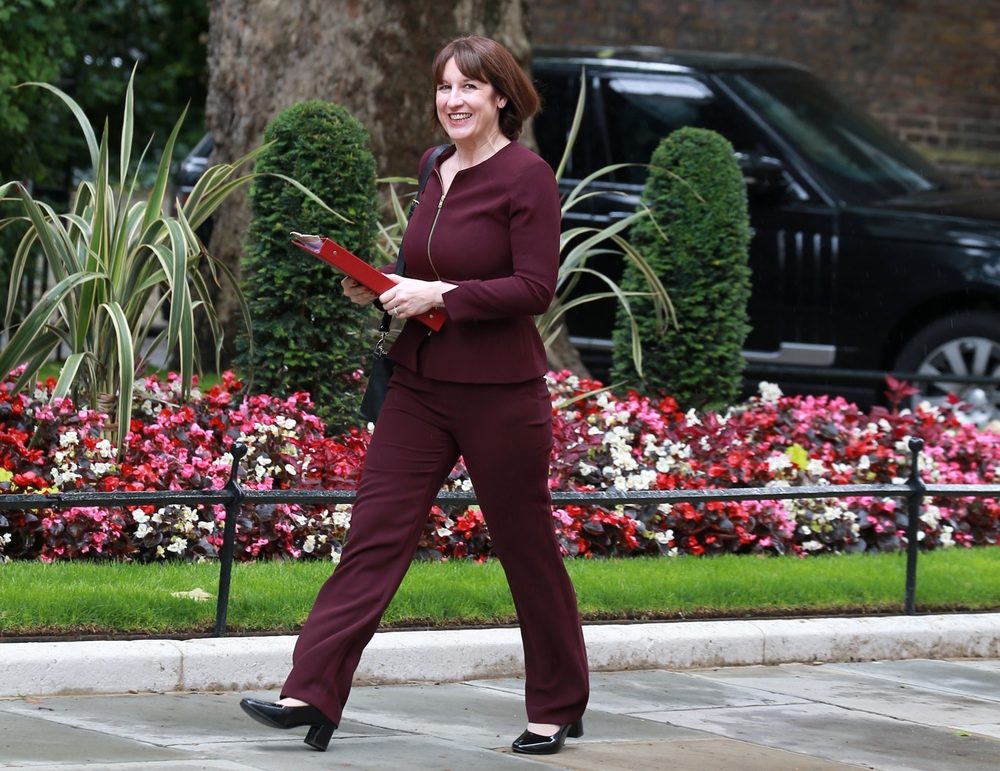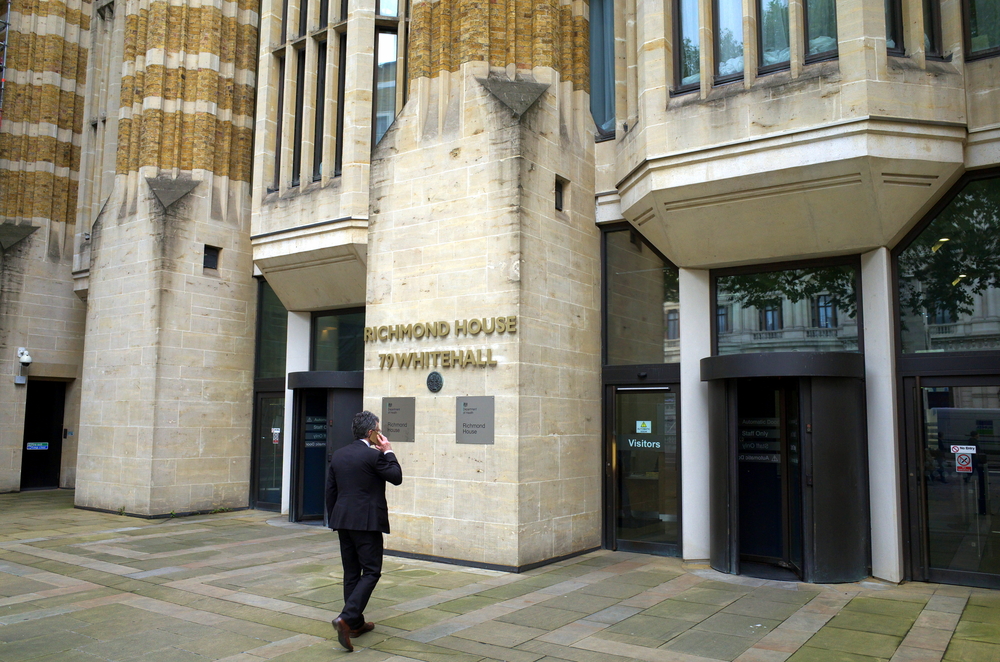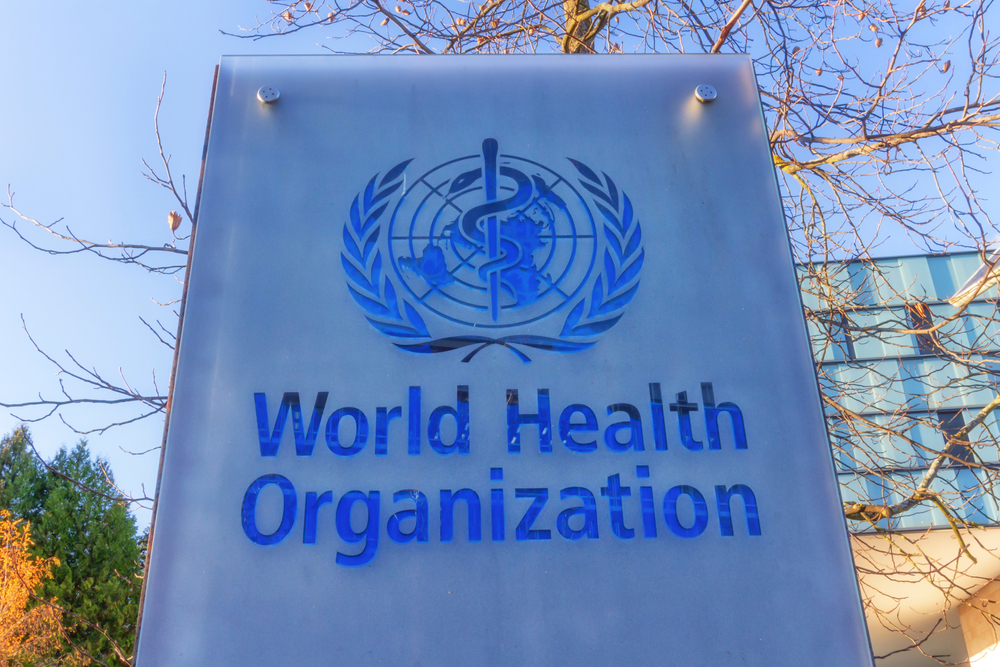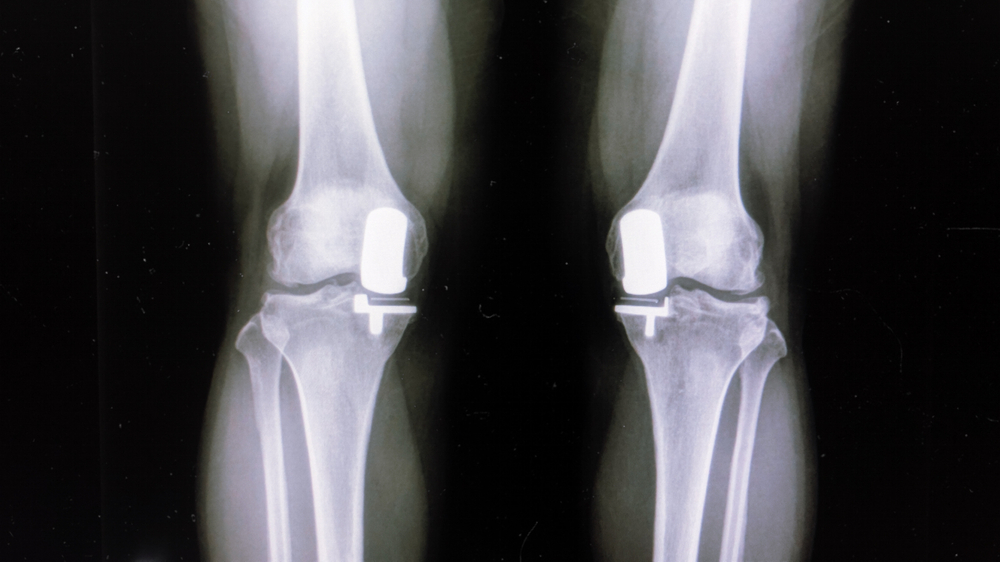Lowdown 100 – our recent content
NHS still failing to prioritise all the most serious emergency patients
Last month a report from Age UK, ‘The Longest Wait,’ highlighted the extraordinary growth of delays in treatment for older patients requiring emergency admission to hospital. Its summary makes shocking reading. There has been a 525-fold increase in the number of instances of corridor care (also known as “trolley waits”) of 12 hours or more
Millions extracted in profit from publicly funded social care
Social care systems in three regions of England are being deprived of millions of pounds as private companies extract large profits, with much of it going to firms owned by private equity or based in tax havens. Analysis in a new report by charity Reclaiming Our Regional Economies found that private care companies operating care
NHS workforce plans in chaos amid vacancies and unemployed professionals
Resident doctors’ strikes are happening for reasons beyond pay. While Wes Streeting says there can be no better than a 2.5% pay rise in 2026—below inflation—this weakens the idea that ministers want to restore doctors’ pay to its former value. The real issue is deeper: growing doctor unemployment, fewer training opportunities, and the added stress
Reverse the “dire state” of community nursing
District nursing in England is in a “dire state” and unless the situation is addressed the government’s vision in the 10 year plan of more NHS care in the community is unachievable, warn the Nuffield Trust in a new report. A failure to invest in district nursing services over many years has left it in
GPs warn of problems with new targets for all-day access
Care minister Stephen Kinnock has joined Wes Streeting in cranking up hostility to GPs who have pointed out that the latest targets for maintaining online access to GP practices every weekday from 8:00 AM to 6:30 PM—outlined in the 2025/26 GP contract—are costly and unrealistic. Kinnock (in a since-deleted ill-tempered social media post) even urged
NHS trusts with £100m-plus backlog deficits
Trust Total backlog deficit (£m) Biggest issue(s) Imperial College Healthcare 902 St Mary’s £296m; Charing Cross £425m; Hammersmith Hospital £132m Guy’s and St Thomas’ FT 532 Guy’s 131m; St Thomas’ £308m Barts 523 Newham General £235m, Whipps Cross £167m London NW Healthcare 463 Northwick Park £304m, Ealing Hospital £155m Nottingham University Hospitals 443 Nottingham City
Backlog maintenance bills are dragging down our NHS – new figures show
The backlog maintenance bill for England’s NHS has soared yet again to a new high of almost £16 billion, a staggering increase of 166% from the £6 billion estimated figure when The Lowdown first started in early 2019. By 2021, it had risen by 50% to £9 billion. In 2022, it reached £10.2bn. With the Tory government’s infamous policy of ‘austerity’ in
Patients unable to leave hospital cost the NHS £2bn a year
For the first time, NHS England has put a price tag on the financial burden of delayed hospital discharges, revealing a staggering £220 million cost in September 2025. This figure comes as the health service grapples with growing pressures, where patients deemed medically fit to leave are left waiting for discharge. While NHS England’s calculation
New US global strategy makes millions suffer
The Trump administration, which began by announcing its decision to leave the World Health Organisation (WHO) and followed up by driving a wrecking ball through the US Agency for International Development (USAID), pulling out of UN bodies and slashing funding for vaccination and health research, has gone from bad to worse since taking office in
Trump regime shuts down government rather than fund health care
The USA’s federal government has been shut down for six weeks due to a deadlock in Congress over planned budget cuts, leaving thousands of federal workers unpaid and endangering healthcare coverage for the poorest families. The budget changes threaten to slash Medicaid spending by $1 trillion over ten years, starting in two years’ time, and
Ministers falling for private sector spin?
One of the reasons ministers appear to have decided that they need the Department for Health and Social Care to take over complete control of the NHS and eliminate NHS England is, according to the Health Service Journal, because: “the [Labour] team see more and more voters paying to go private, and honestly believe the
Programme to address the overuse of medications gets cut
A programme that successfully reduced NHS medicine costs and improved patient safety has been forced to close due to a lack of funding, just as NHS medicine costs appear set to rise sharply. The National Polypharmacy Programme, established by doctors and pharmacists in April 2022 and operated by the NHS’s Health Innovation Network (HIN), aimed
NHS shakeup shutting out community voices?
One consistent thread running through the Government’s proposed NHS reorganisation is a reduction in local accountability to the communities served by NHS bodies. The cutbacks in Integrated Care Board (ICB) running costs involve a wholesale process of ICB mergers that in many cases result in even larger geographical areas being run by a single body,
Keeping track of Labour’s policy contortions
So it’s official: the rumours of Treasury refusal to pay up the costs of redundancy and early retirement payments for staff whose jobs were to be axed in the planned abolition of NHS England (NHSE) and the halving of staff numbers employed by England’s 42 Integrated Care Boards (ICBs) were true. Back in June, the Health
Commercial activity in the NHS: Trends & analysis
privatisation Funding November 21, 2025 Millions extracted in profit from publicly funded social care Social care systems in three regions of England are being deprived of millions of pounds as private companies extract large… Read More Analysis October 3, 2025 ICB WATCH: New figures show uneven trends on use of private sector? New figures published
Mental health procurement found to have major issues
Major issues have come to light around the procurement process for a new mental health service in Mid and South Essex. A report from the Independent Patient Choice and Procurement Panel (IPCPP) found that the process, which led to the private company Vita Health being awarded the contract in May 2025 by Mid and South
NHS chiefs warn of flaws in new league tables
Labour’s 10-year plan, published in July (seriously weakened by a lack of funding and an effective implementation strategy), promised to publish “easy-to-understand league tables, starting this summer, that rank providers against key quality indicators”. This seems to be the answer to a question that is almost never asked by patients (who for the most part
ICB WATCH: New figures show uneven trends on use of private sector?
New figures published earlier this month show the extent to which some Integrated Care Boards (ICBs) have increased their use of the private sector since Labour took office last July, and the extent to which a minority of ICBs have become much more dependent on private providers than others. Some readers may be surprised to
Is government in denial over unfair treatment of mental health patients?
Mental health patients are waiting nearly 12 times longer than those needing physical health treatment, despite Labour’s manifesto pledge to give both ‘the same attention and focus’ – raising questions about the government’s commitment to one of its central health promises. Labour’s 2024 manifesto says: “right at the core of our mission will be a
Mackey wrong-footed as Treasury refuses to cover £1b redundancy costs
NHS England chief executive Sir Jim Mackey seems confused. On September 19 he sent out a boisterous, upbeat circular to chief executives and chairs of all 42 Integrated Care Boards (ICBs), trusts and foundation trust, which began by asserting that progress since April “has been astonishing.” Aside from some dodgy claims about (minimal) progress on waiting times “in electives,
Government change course after lobbying on NHS spin-off companies
After months of dispute, the government has decided to bring an end to the farce of NHS Trusts forming wholly owned subsidiary companies – subcos – to avoid tax and to threaten staff terms and conditions. In an announcement sent to all Trusts by NHS England’s ‘Financial Reset and Accountability Director’ Glen Burley (previously a
Dorset NHS hospital aiming for 500% increase in private patients to pay for buildings
University Hospital Dorset (UHD) NHS Foundation Trust based in Bournemouth and Poole has launched a tender seeking a private healthcare company as a long-term joint venture partner in order to substantially increase its private work and help pay for its ongoing £550 million refurbishment and upgrade process. In the tender documents, the Trust notes that
Do claims of waiting list improvement stand-up?
Jim Mackey’s September 19 circular to local health chiefs claims England’s NHS has been “continuing to improve waiting times in electives, cancer and for emergency care.” Is this true? It’s a mixed picture. On cancer, there is some good news. Performance on the key 28-day target (“Four Week (28-days) Wait from Urgent Referral to Patient
GPs to enter dispute with Government over contract changes
GPs in England have voted to re-enter dispute with the Government from 1 October, the BMA has announced. The dispute centres around the contract changes set to begin 1 October which will mean GP surgeries have to keep their online systems, telephones and doors open through the core hours of 8am to 6.30pm. At a
BMA votes to oppose 10 year plan for NHS
BMA leaders have voted to oppose the government’s 10-year plan for the NHS. The vote, at a special meeting of BMA representatives, called on the government for safeguards to GP independent contractor status as well as addressing other concerns around workforce and digital plans. Doctors have deep concerns that many of proposals in the plan
Private equity – “decimated” US hospitals according to report – now targeting the NHS
In late August the release of a report by US senator Chris Murphy (D-Conn) on the destruction of hospitals in his home state of Connecticut, and across the US by private equity companies highlights once again the negative effect of this form of investment. The report documented what happened when three Connecticut hospitals—Waterbury Hospital, Rockville
Private finance to power NHS move into community – other options?
The government’s recently unveiled 10-Year Health Plan wants to set up to 300 “neighbourhood health hubs.” – local one-stop centres to offer diagnostics, outpatient treatment, mental health support, and preventive services, to relieve pressure on hospitals. To fund the plan, the government is turning to the private sector, but what does history teach us about
Decision to outsource community GP service to be re-run
The selection process for a provider of primary care services for the Whitehawk surgery in East Brighton “was neither transparent nor fair”, according to the Independent Patient Choice and Procurement Panel (IPCPP). The IPCPP, set up in 2024 to adjudicate disputes about commissioning NHS-funded healthcare services, has now told the Sussex Integrated Care Board (ICB)
Time to act on profiteering from NHS eye ops
In an attempt to rein in the private providers of ophthalmology services, NHS England has just launched a consultation to reduce tariff prices for three of the most common procedures. The proposed changes could result in 20 independent sector hospitals losing a total of £64m, with NHS providers gaining a similar amount, according to the
ICB pushes Shropshire GPs aside to bring in venture capital company
In a controversial move, the Shropshire, Telford and Wrekin Integrated Care Board (STWICB) has announced the termination of its contract with Shropdoc, a local not-for-profit organization run by GPs, for out-of-hours GP services. The contract will now be awarded to Medvivo, a for-profit subsidiary of the multinational Health Hero group, backed by the Eight Roads
NHS Physician Associates: Safety Review Sparks Controversy and Change
A government-commissioned Leng Review, recently published, has reignited the debate over physician associates (PAs) in the NHS, proposing new ways of working, but it does not support calls to abolish the role. Key Findings There is insufficient high-quality evidence on safety and outcomes, and no convincing reasons to abolish the roles of AA or PA;
Nottingham trust goes public over cuts and job losses
The public announcement of at least 430 jobs to be axed and some wards closed in Nottingham University Hospitals Trust was bad enough news for the 2.5 million patients in its huge East Midlands catchment area – but it could be worse. NUH chief executive Anthony May has told local Keep Our NHS Public campaigners
How do promises on prevention of illness measure up?
Reaction to the NHS ten-year plan concludes that it “fails to live up to the promises” and lacks ambition when it comes to moving from illness to prevention, one of the government’s three fundamental shifts in how the NHS works.’ Matthew Bazeley-Bell, Deputy Chief Executive, Royal Society for Public Health (RSPH), noted: “this was the
Ten Year Plan – A tour of the dead ends
John Lister looks more closely at some of the key proposals and ideas in the Ten Year Plan Foundation Trusts When these bodies were first launched back in 2004 FT status was only open to the top-rated ‘3-star trusts’ – already the wealthiest and best-performing. They are now to be to reinvigorated and reinvented, with
Labour and private sector: an unequal marriage
Labour’s delayed and much vaunted Ten Year Plan for the NHS, Fit for the Future, has 150-plus pages rammed full of ideas, some good, some bad – but barely a word on how any of them are to be implemented, and not one word on how social care can be developed to keep pace with
Streeting dredges up failed policies from 2000s
The leading health management journal, the Health Service Journal, has now seen a draft of Labour’s long-awaited 10-year Plan for the NHS, and pronounced it “a mess.” We might have guessed as much from the shambolic changes of direction and contradictory announcements in the last few months. But what is especially troubling is that despite
Newly qualifying nurses and midwives fearful they won’t find jobs
While many will applaud the government’s decision to set up a rapid review of maternity safety, it is taking place while the future staffing of maternity care is being put at risk by short sighted policies and spending constraints on local trusts. After nearly one year in office, Labour ministers have abysmally failed to tackle
Urgent and Emergency Care: when is a plan not a plan?
The plan for urgent and emergency care services for 2025/26, unveiled in early June by the Department of Health and Social Care and the soon-to-be-abolished NHS England, is a very strange document. Despite the attempts to strike a positive note in many of the official press releases, and the assurances of NHS England CEO Sir
Emergency doctors see some good, some bad in UEC Plan
The Royal College of Emergency Medicine (RCEM), which has noted that the Government’s urgent and emergency care services plan for 2025/26 contains “some good and some bad,” has expressed concern about one important target, to: “Reduce the number of patients waiting over 12 hours for admission or discharge from an emergency department compared to 2024/25,
Mental health emergency response expanded
The announcement of 15 new mental health units, in itself potentially positive news, contradicts the announcement only days earlier of ten pilot specialist mental health crisis centres being set up around the country. There’s no denying an urgent need for more capacity to ensure that people with mental health needs who attend emergency departments get
NHS 999 staff quitting due to the relentless pressure
The relentless pressure of calls that deal with life-changing injuries is taking a major psychological toll on NHS 999 staff, who are quitting and suffering burnout, according to a new report from UNISON. The report, launched at UNISON’s Liverpool conference 17 June, highlights the high turnover rates among call handlers, with more than a quarter
Explainer: NHS funding after the spending review
The NHS is widely seen as having received a generous settlement in the recent spending review, compared to the settlements for other departments, such as policing and education. The settlement covers from 2026/27 to 2028/29 and gives the DHSC an overall 2.8% average annual increase in department spending, but within this NHS England, which covers
Is the NHS really a winner from the spending review?
It was widely reported as a ‘generous’ settlement for the NHS in the spending review, compared to other departments such as policing and education. However, there are numerous calls on this funding and painful compromises ahead. Top line figures: The Department of Health and Social Care budget will rise by 2.8% on average from 2026/27
Twin dangers for NHS: regional control or a revived health care ‘market’
Just weeks ahead of the promised publication of a new 10-year Plan for the NHS in England even those closest to the process seem unclear on what it might contain. A recent article by the chief executive of a non-profit outfit known as Curia, which claims to be relatively well informed, tells us the Plan will involve:
Radiology delays linked to unsustainable NHS Privatisation
Nearly one million patients in England waited over a month for their scan results in 2024, marking a 28% increase from the previous year, according to data published by the Royal College of Radiology. This surge occurred despite NHS spending on private teleradiology services reaching £216 million, a 24% rise from 2023 and more than
GPs trained but unable to find work: Why the NHS funding crisis is causing GP unemployment
For years, governments have failed to meet targets to recruit enough GPs, but now trained doctors are struggling to find posts. The reason it seems is not an excess of doctors but chronic underfunding, workforce policy decisions, and a significant lack of investment in healthcare infrastructure. The scale of the problem is striking: a BMA
NHS told to slow down referrals amid rising waiting lists and job cuts
It is only a small increase, 20,000 more added to a waiting list that had fallen for months in a row to 7.4 million: but it’s a warning that the government’s changes are tilting the NHS back in the wrong direction. The commitment to achieve the 92% target for patients starting treatment within 18 weeks
Dementia care needs an urgent overhaul in the face of understaffing and poor training
The care of the thousands of people with dementia is being compromised by a shortage of staff in both adult social care and in the NHS, and a lack of understanding of the needs of those living with dementia, according to a new report by the CQC. The report, based on engagement with people living
NHS shakeup slashes jobs, will it help cut waiting lists?
A newly unveiled NHS Blueprint signals a significant organisational shake-up aimed at reducing operating costs and restructuring functions within local health systems in England. Tens of thousands of job losses will result to make way for the government’s new ambitions, but how will it help fix rising waiting lists and falling standards? What is the ICB Blueprint?
NHS must brace for hidden costs of disability benefit cuts
More than two months on from the government’s announcement in the spring statement that they would continue with and intensify the previous (Tory) government’s attacks on disability benefits, and the subsequent publication of Work and Pensions Secretary Liz Kendall’s Pathways to Work green paper, proposing a £4.5 billion cut in Personal Independence Payments (PIP), there
Explainer: social care workforce crisis
Social care providers will no longer be able to recruit staff from abroad via the health and care worker visa as part of the Labour government’s reform of immigration outlined in the white paper published 12 May. Instead, social care providers will have to use domestic staff, people on other immigration visas or the pool
Warning as “non-clinical” NHS staff come under fire
Legal loopholes let Trust bosses push through privatisation – An introduction by John Lister, followed by Andy Benson’s account of the legal battle to prevent the outsourcing of non-clinical staff in a North Essex NHS Trust As NHS trusts draw up plans to axe large numbers of “non-clinical” staff in efforts to contain spending within
Does tax avoidance explain the NHS outsourcing to itself?
In running hospitals, NHS Trusts pay VAT on goods and services but cannot claim any VAT back. This has always been the case and is accounted for in how the Trusts receive their funding. Then, Trust leaders discovered that under special HMRC Regulations, providers of services outsourced by the NHS can reclaim VAT under circumstances defined
What difference has Labour made so far?
At the start of the year, Lowdown was critical of the self-congratulatory tone of a Wes Streeting speech to Labour Party members just before Christmas, in which he also (correctly) insisted that ministers should be judged by what they deliver. Perhaps because of this, Mr Streeting was rather less triumphalist in his recent speech to
Neighbourhood health care could stretch NHS budget to breaking point
The Lowdown has heard that some health workers are being warned to brace themselves for “radical” proposals in the government’s 10-year plan, scheduled for June publication, and that it will centre on “neighbourhood health.” This helps explain a recent extraordinary 3,000-word feature by Health editor Laura Donnelly in the Telegraph, the chosen platform for so
NHS landlord bought by private equity
The recent agreement for two major US private equity companies, Kohlberg Kravis Roberts (KKR) and Stonepeak, to acquire the UK property company Assura for £1.61bn ($2.09bn), has once again highlighted the involvement of private equity in the NHS. Assura specialises in healthcare property with more than 600 health care buildings, including many GP surgeries and
Changing stories as England’s NHS charts course for cuts
The rapid pace of change and abrupt lurches in direction of England’s NHS leadership at national level are creating widespread confusion, along with the demoralisation that flows from impending job losses and yet another major top-down reorganisation. After Keir Starmer’s surprising intervention last month NHS England (NHSE) itself is set to axe half its staff
Review of new report: “forty years of failure” – examining the lessons from NHS outsourcing
Forty years of failure – Private sector contracting and its impact on the NHS, by Dr John Lister, offers a scathing critique of the NHS’s privatisation experiments. Each chapter peels back layers of policy missteps and their consequences. The report begins in the Thatcher era, when ideology-led policy dominated and outsourcing was sold as
East of England ICBs brace for another year of austerity
A round-up by John Lister of the financial situation in East of England Integrated Care Systems (ICSs), drawing on the latest available Integrated Care Board (ICB) papers as of March 24. What ICBs must deliver NHS England’s ‘Operational Planning Guidance, ‘ which outlines the expectations for all of England’s 42 ICBs in 2025/26, states that
Spring Budget 2025 analysis: What is the outlook for health and social care?
The Spring Budget offered little additional support for the NHS or social care, as the government leaned on existing commitments around workforce, technology upgrades, and efficiency drives. What will be the impact? No New Funding to Boost NHS Capacity Sally Gainsbury, Senior Policy Analyst of the Nuffield Trust, confirmed that the day-to-day health budget is
SubCos return, in threat to NHS pay and conditions
Subsidiary companies (Sub Co), spun off from the NHS, are back in favour as part of the effort to save money in the NHS. Sir Jim MacKey, NHS England’s transition CEO, told a recent meeting of health leaders that all NHS trusts should transfer support staff to wholly-owned subsidiary companies to reduce costs. Sources told
Management consultants step up for NHS shakeup and beyond
The scale of the government’s structural overhaul of the NHS is proving to be far greater than initially thought, with up to 30,000 jobs now at risk. With internal battles to make savings and fill capacity gaps, NHS leaders are already turning towards the management consultancy firms whose business is booming. The most recent figures
Axing NHS England – a diversion from urgent problems?
Last week’s shock announcement of the big top-down reorganisation of the NHS, with the decision to scrap NHS England (announced just three days after Health Secretary Wes Streeting called for its staffing to be halved), seems to have diverted a lot of news media from the ongoing problems at the front line in hospitals and
Waste and delay still occur in improved outsourcing process
Integrated Care Boards (ICBs) strapped for cash continue to see time and money disappear on lengthy procurement processes open to private companies and legal challenges. In recent weeks, two large-scale procurement processes have hit the buffers. In North West England, a group of ICBs halted the procurement of non-emergency patient transport (NEPTS) due to legal
Purge of top management indicates deep NHS cuts to come
A massive new reorganisation of the NHS has been under way since the end of last year: it took a further lurch forward and hit news headlines on March 13 with Sir Keir Starmer’s surprise announcement that NHS England is to be abolished. Throughout the process the hand of Health Secretary Streeting and his aides
Lack of accountability and management failure: what the ESNEFT outsourcing decision reveals
By Irwin Nash and John Lister Hundreds of non-clinical support staff are being forced out of NHS employment by East Suffolk and North Essex NHS Foundation Trust (ESNEFT) by a process that appeared all along to be secretive and dishonest. Back at the beginning of April last year the main union, UNISON, reacted strongly to
Devon ICB meeting Jan 2025 (Longer summary)
NHS Devon is the most financially challenged ICS in England. In June 2024, the chair of the ICB (Integrated Care Board), Sarah Wollaston, resigned, saying she felt unable “to sign off on a further cut” because the “elastic had already stretched too far.” She said she was “not happy” with new plans promising “unachievable” results
Devon ICB meeting Jan 2025 (short summary)
Overview - NHS Devon ICB - Jan 2025 meeting - NHS Devon is currently the most financially challenged Integrated Care System (ICS) in England. - Sarah Wollaston, the chair of the Integrated Care Board (ICB), resigned in June 2024, citing concerns over “unachievable” plans that may lead to unacceptable patient consequences. Public Meetings and Transparency
Delayed discharge explainer: health and care pressure
What is it? The phrases ‘delayed discharge’ from the hospital and ‘patients that no longer meet criteria to reside’ are frequently used in relation to hospital problems. Both refer to patients who are well enough to leave the hospital but have not yet been discharged. How big is the problem? Since July 2022, the number
Labour drags NHS ‘back to the future’
Karl Marx warned that “History repeats itself, first as tragedy, second as farce.” However, he was referring to similar events, not the literal repetition of the same failed policies by the same party (and several of the same people) 25 years later. But that seems to be what Keir Starmer and his Health Secretary Wes
How can the public scrutinise their ICB?
The 42 Integrated Care Boards (ICBs) across England that are responsible for planning, commissioning, and funding NHS services also have a legal duty to involve people in their area in these processes. The Health and Care Act 2022 states that citizens, their carers and representatives have the right to be involved in the planning of
Two huge community care services outsourced, but with what oversight?
The decision by Bath and NE Somerset, Swindon and Wiltshire Integrated Care Board (ICB) to award a contract for the provision of all community care services across the ICB area to a private equity-owned company – HCRG Care Group – is continuing to cause some controversy. The ICB managed to award the contract without a
Employers offer more health insurance benefits
According to headline figures from a report by private health market analysts LaingBuisson, the private medical insurance (PMI) business is booming. Almost one in eight people, or 4.68 million, have some form of PMI, but does this figure give us an accurate picture of the trends? The report covers up to the end of 2023 and
Government retreats from promises and targets
John Lister comments on the government’s 2025 mandate to NHS England and NHS England’s delayed 2025/26 Priorities and Operational Planning Guidelines With local and national media headlines again and again flagging up the long delays of patients and ambulances at hospital emergency departments, delays endangering the lives of patients waiting too long for cancer care,
Can Trump cut health spending?
The Trump agenda is not all about gagging scientists and people fighting against inequality: the aim is to minimise state spending, not least on health care, to maximise the possibility of tax cuts for Trump’s backers, the super-rich. But slashing government health spending, and in particular cutting the already restricted Medicaid program which provides for
Children waiting and rejected for mental healthcare
Mental health services continue to be under-resourced, leading to long waits and poor care. This week, MPs called for urgent national reform of the NHS’s eating disorder services if they are to address the UK’s escalating eating disorder crisis. In the report The Right to Life: People with Eating Disorders Being Failed – the All
Streeting tries to bury bad news: new hospitals postponed to 2040s
Wes Streeting may have sneaked out his announcement during Donald Trump’s inauguration ceremony on January 20, hoping attention would be focused elsewhere, but it’s clear that the new timetable for building new hospitals is bad news for almost all areas of the NHS. Of course, the underlying problem was the 14 years of austerity policies
Trump orders exit from WHO
While most of the Trump health-related policies will primarily impact on Americans, and especially the poorest and most discriminated against, the biggest international impact will come from Trump’s decision to begin the process of withdrawing from the World Health Organization. Trump made a similar push to leave WHO relatively late in his first term but
Trump policy attacks science, public health and diversity
Donald Trump’s second term as US president has already begun to attract accusations of damage to scientific research and efforts by any branch of the federal government to improve diversity, equity, and inclusion (DEI). Despite having won his re-election on the basis of votes from poorly informed working-class and rural voters, these are likely to
Solving the social care problem
The government has launched an independent commission to reform adult social care. The task force, led by cross-bench peer Louise Casey, will develop plans for a new national care service, one of Labour’s election manifesto pledges. The process will have two phases. The first, which will identify critical issues and recommend medium-term improvements, will be
Waiting list policy reset makes things worse
Health secretary Wes Streeting has said some patients' experience of the NHS this winter makes him feel "ashamed," and he had seen patients left crying and distressed and stuck in corridors as hospitals struggle to cope. But his comments are less convincing coming as they did the day after Keir Starmer made a big speech
NHS 2025 – a springboard to recovery?
John Lister and Paul Evans offer an overview of the NHS’s state of play six months after the general election and the prospects for positive change beginning in this new year. This week, the Labour government announced yet another enquiry on social care, to an audible groan, and as we publish this article, the Guardian
ICS – Savings League – the race to cut NHS costs
ICB Savings target (£m) NHS Lancashire and South Cumbria ICB 530 NHS North East and North Cumbria ICB 520 NHS Greater Manchester ICB 490 NHS Cheshire and Merseyside ICB 440 NHS West Yorkshire ICB 434 NHS Kent and Medway ICB 400 NHS North East London ICB 289 NHS South West London ICB 257 NHS South
Why are local NHS leaders running out of funds?
In our investigation through the recently published papers from Integrated Care Boards, the factors for rising financial issues included: There is still chronic difficulty in many areas for hospitals trying to discharge patients for lack of adequate community health, primary care or social care services to support them outside hospital. The result is more beds
ICB WATCH – an Insight in to the latest decisions affecting your local NHS
NHS England - Latest update on decisions from Integrated Care Boards (ICB) In each of the 42 integrated care systems across England, the Board (ICB) plans and commissions the majority of local health services. Nearly all have been forced to set targets to make large savings, totalling around £8bn across all integrated care systems. Our
Financially challenged ICBs brace for winter pressures
A Lowdown trawl through ICB Board papers published in November has revealed it to be an almost surreal moment in which NHS England’s agreed deficit funding has been received, creating perhaps the most favourable moment of the entire financial year, with relatively small scale deficits still showing through. But as Coventry & Warwickshire ICB notes,
Enough funding for the NHS?
The recent budget announced a £22.6 billion cash injection for the NHS, hailed as the largest spending increase since 2010 outside of the Covid pandemic. While it appears generous compared to previous years, questions arise about whether this funding will truly transform an NHS that has faced over a decade of financial strain. Keeping track
NHS finance jargon buster
This is a guide to some of the terminology you might encounter in reading the information published as part of our investigations into the finances of ICSs Control total – This is the target financial endpoint for each Integrated Care System at the end of the year, as agreed with NHS England. For most, this
ICBs aim for £8bn savings, risking NHS staff and delays
ICB WATCH – data collection October/November 2024 An investigation by The Lowdown of all 42 Integrated Care Systems (ICS) in England has found that nearly all are making decisions to restrict spending by a collective total of around £8bn. You may be forgiven for thinking the cash from the budget has eased the situation—it will
Reviving old policies threatens new NHS failures
Wes Streeting’s new package of “reforms” seems set to deepen inequalities in health and access to health care. It includes a return to ‘league tables’ to rank trust performance, threats to cut pay or sack senior management in struggling trusts, and incentives for those who are already doing well. This approach is not new or
Midlands ICBs
December 2024 Key points – Integrated Care System update Due to the number of Integrated Care Systems under extreme financial pressures and managing deficits, NHS England agreed on new financial targets (control totals) for the end of the financial year (2024/5), which allowed for deficits in many cases. Even with an agreed-upon deficit, some ICSs
South West ICBs
Key points – ICS financial update Due to the number of ICSs under extreme financial pressures and managing deficits, NHS England agreed on new financial targets (control totals) for the end of the financial year (2024/5), which allowed for deficits in many cases. Even with an agreed-upon deficit, some ICSs are still off course, with
South East ICBs
November 2024 Key points – Integrated Care System update Due to the number of ICSs under extreme financial pressures and managing deficits, NHS England agreed on new financial targets (control totals) for the end of the financial year (2024/5), which allowed for deficits in many cases. Even with an agreed-upon deficit, some ICSs are still
North West
December 2024 Integrated Care Systems update Key points: Due to the number of Integrated Care Systems under extreme financial pressures and managing deficits, NHS England agreed on new financial targets (control totals) for the end of the financial year (2024/5), which allowed for deficits in many cases. Even with an agreed-upon deficit, some ICSs are
North East and Yorkshire
December 2024 Integrated Care Systems financial update Due to the number of ICSs under extreme financial pressures and managing deficits, NHS England agreed on new financial targets (control totals) for the end of the financial year (2024/5), which allowed for deficits in many cases. Even with an agreed-upon deficit, some ICSs are still off course,
Doctors warnings ignored as fresh winter crisis looms
As winter approaches, with the days growing shorter, the warnings from the Royal College of Emergency Medicine are growing more frequent and anxious. Responding to the Labour government’s first Budget Dr Ian Higginson, Vice President of the Royal College of Emergency Medicine, said: “We commend the government’s ambition to start rebuilding the NHS which has
Lowdown’s NHS sit rep Autumn 2024 – the state of ICS finances
This is Part 1 of the latest Lowdown overview of the financial state of the NHS, drawing on ICB and trust board papers and other sources. Most of the work was done in the second half of October. Since this draft was completed, the Health Service Journal has published a hard-hitting interview with Hardev Virdee,
NHS backlog repair bill soars towards £14 billion
When The Lowdown first started in early 2019, the backlog maintenance bill for England’s NHS was estimated at £6 billion. By 2021, it had risen to £9 billion. In 2022, it reached £10.2bn. But with the Tory government’s infamous policy of ‘austerity’ in full swing and restricting capital spending in the NHS up to the July election, and little
London ICBs
Integrated Care System update Key points: Due to the number of Integrated Care Systems under extreme financial pressures and managing deficits, NHS England agreed on new financial targets (control totals) for the end of the financial year (2024/5), which allowed for deficits in many cases. Even with an agreed-upon deficit, some ICSs are still off
East of England
Bedford, Luton and Milton Keynes Control Total (24/25) ⓘ Current variance from C Total ⓘ Month YTD Deficit (£ million) ⓘ Savings Target ⓘ Break-even 4 9.1 £106m The Integrated Care System (ICS) had submitted a plan to NHS England projecting a balanced budget (break even)for 2024/25 (p21), one of the few systems in the

Dear Reader,
If you like our content please support our campaigning journalism to protect health care for all.
Our goal is to inform people, hold our politicians to account and help to build change through evidence based ideas.
Everyone should have access to comprehensive healthcare, but our NHS needs support. You can help us to continue to counter bad policy, battle neglect of the NHS and correct dangerous mis-infomation.
Supporters of the NHS are crucial in sustaining our health service and with your help we will be able to engage more people in securing its future.
Please donate to help support our campaigning NHS research and journalism.














